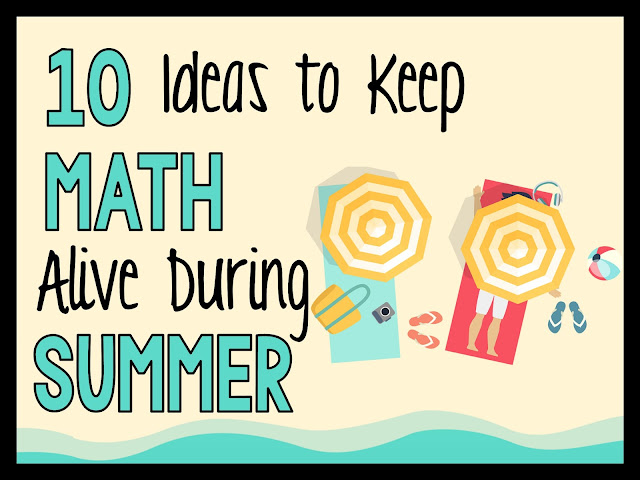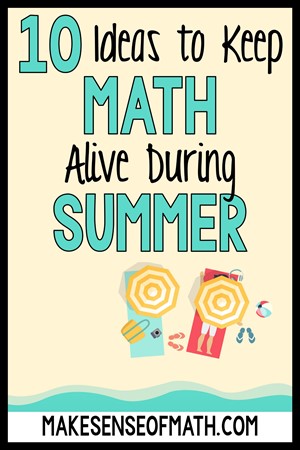Doing math worksheets is likely not on the list of activities your students or child wants to do this summer. In fact, I read about a recent study from the Harvard Graduate School of Education that math worksheets during the summer do not actually improve a child's math performance. Instead, the Harvard Graduate School of Education suggests that by helping your child see and use math in every day life you can help prevent summer math loss. You can read more about this study Here
Here are some great suggestions to keep math alive for your student during the summer.
1. Real-World Integers - Take a picture of three examples of people or companies using integers in the real-world.
2. Grocery Store Rates - Go to the grocery store and take three pictures of unit rates on the labels. Explain how you can use this information to save money.
3. Interviews - Interview an adult who is a stay-at-home parent and how they use math in their life. Write a short report about what you learned.
4. Budgets - Learn how to make a budget through research and/or by talking to an adult who uses a budget. Create a fake budget for a salary of $2,500/month.
5. Architecture - Draw a scale drawing of your bedroom. Include a scale, and at least three items in your room. Use the scale drawing to discover different ways to re-arrange the furniture in your room.
6. Real-World Fractions - Take a picture of three examples of people or companies using fractions in the real-world.
7. Interior Design - Calculate the surface area of your bedroom walls. How much paint will you need if you want to repaint the walls?
8. More Interviews - Interview a professional who uses math in their career. Write a short report on what you learned.
9. Advertising - Search a grocery add and cut out three adds that advertise products as multiples/$, such as 2/$5. Figure out the unit cost of each product.
10. Math In Nature - Learn about the Golden Ratio, and find examples of this ratio in nature. (I had my students do this once, and they loved it! The Golden Ratio is so fascinating!)
Talk with Your Kids about Math
Adults often over look how often they use math in their lives: calculating distances, budgeting, area for gardens or decorating, cooking, etc... Talk with your child or students about how you use math every day and help them open their eyes to the math that lies at their fingertips.










